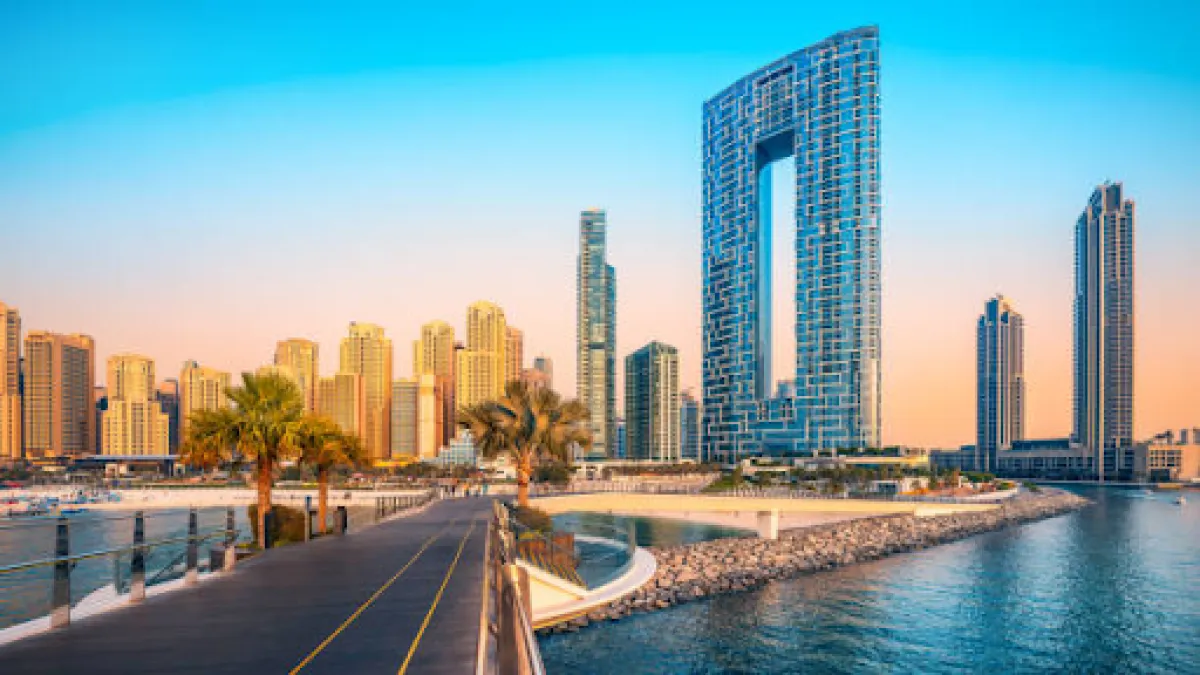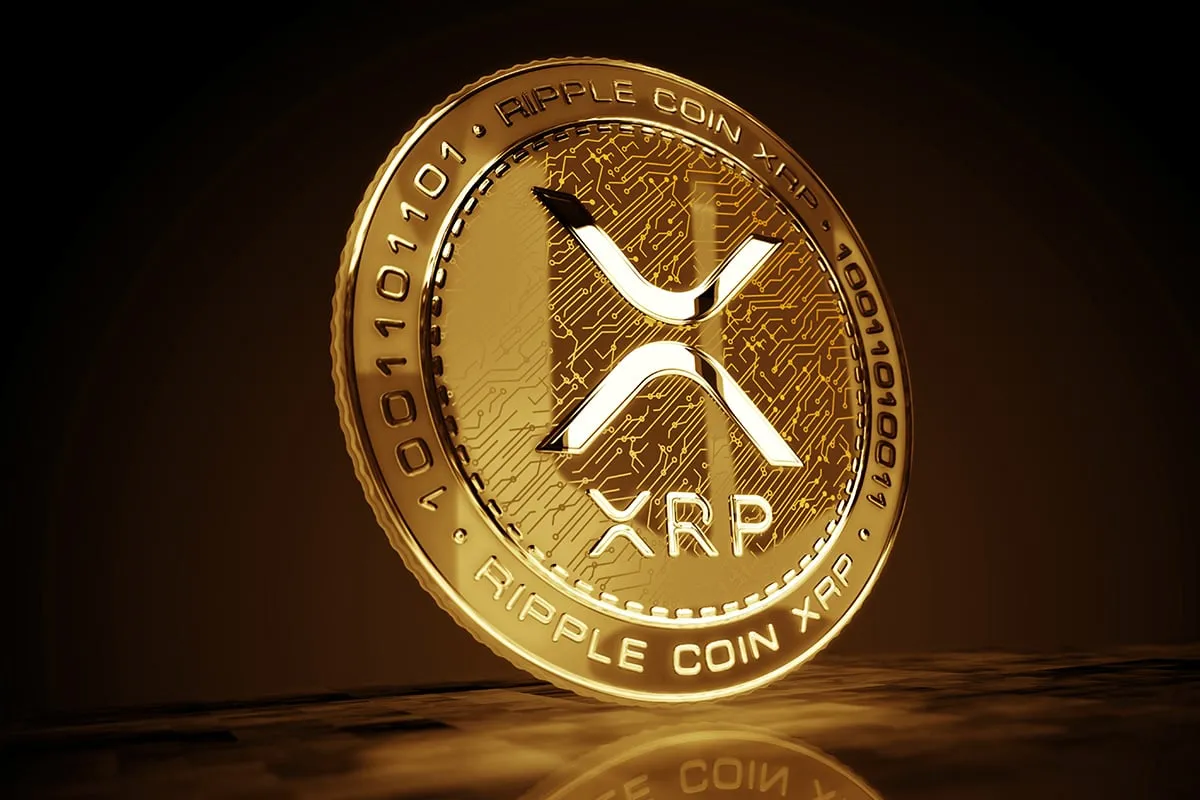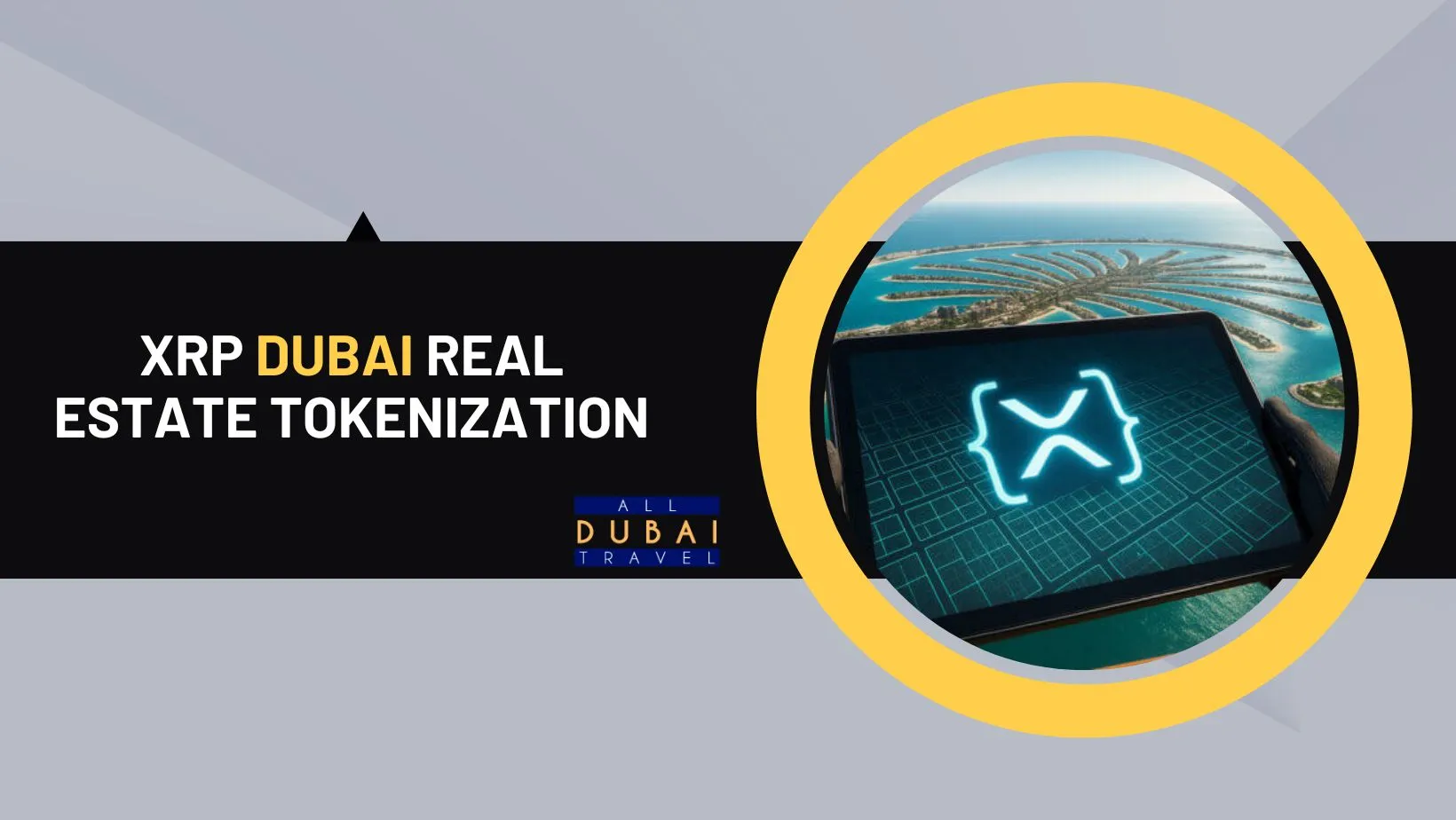Through the innovative XRP Dubai Real Estate Tokenization effort, properties in Dubai are being digitalized on the XRP Ledger, facilitating speedier transactions, fractional ownership, and more accessibility to investments. Supported by the Dubai Land Department, it is a significant step toward integrating blockchain technology with real estate.
1. Introduction: A New Era for Property Investment in Dubai

Dubai currently launched the Middle East’s first government-backed real property tokenization platform using the XRP Ledger (XRPL) . With backing from the Dubai Land Department (DLD), Virtual Assets Regulatory Authority (VARA), and the Dubai Future Foundation, this pilot enables fractional ownership of property—beginning at just AED 2,000 (~USD 545)—and brings actual estate funding into the virtual mainstream .
This flow is part of Dubai’s broader Real Estate Sector Strategy 2033 and Economic Agenda D33—ambitions to digitize 7% of its AED ~860 billion assets marketplace by 2033 (~USD sixteen billion).
Read Also: Dubai First Royale Mastercard: The Ultimate Luxury Credit Card
2. Why Tokenize Real Estate?
2.1 Fractional Ownership & Accessibility
Tokenization lowers obstacles: no need to shop for complete units. With AED 2,000 entry, normal traders—consisting of UAE residents—can participate.
2.2 Liquidity & Secondary Markets
Property tokens may be traded on secondary markets, offering liquidity some distance beyond conventional purchase-and-preserve belongings .
2.3 Transparency & Trust
Every transaction is on a public, immutable XRPL ledger, tightly incorporated with DLD records—no risk of tampering .
2.4 Speed & Cost Efficiency
Blockchain transfers reduce agreement from weeks to seconds and decrease prices to mere cents, compared to sluggish, paper-heavy legacy structures
3. Why XRP Ledger (XRPL)?
Dubai selected XRPL for its best suit with public-quarter XRP Dubai Real Estate Tokenization:
Fast transaction finality (~three–5 seconds)
Ultra-low community costs (~$0.0002)—makes micro transactions viable
High throughput (~1,500 TPS), coping with mass transactions without problems
Energy-efficient consensus, aligning with Dubai’s Net Zero 2050 dreams
Built-in compliance features: company manipulate, whitelisting, KYC/AML aid
4. Key Players & Structure
four.1 Dubai Land Department (DLD)
Launched the Real Estate Tokenisation Project beneath the REES (Real Estate Evolution Space Initiative)
four.2 VARA & UAE Central Bank
Ensure licensed issuance and investor safety thru the Real Estate Sandbox
4.3 Dubai Future Foundation (DFF)
Guides virtual transformation within surroundings
four.Four Ctrl Alt & Prypco
Ctrl Alt constructed the tokenization infrastructure; Prypco launched the Prypco Mint platform, permitting fractional share purchases
4.Five Ripple & XRPL Supporters
RippleX and other XRPL advocates furnished strategic and Dubai Land Department XRP.
5. How the System Works
Asset Tokenization: DLD unlocks deeds, developer registers devices on XRPL via Ctrl Alt/Prypco
Token Launch: Tokens (every representing a deed fraction) are issued, synced with DLD’s land registry
Investment Interface: Investors purchase on Prypco Mint with AED 2,000 min thru UAE ID
Transaction Recording: Block confirmations on XRPL replicate immediately in DLD database
Secondary Trading: Token holders change tokens thru marketplace after KYC/AML
Legal Recognition: Blockchain facts and land titles are legally aligned—tokens are bearer tokens with prison backing
6. Scale & Market Potential
Dubai pursuits to tokenize 7% of its actual property transactions, amounting to AED 60 billion (USD ≈16 billion) by way of 2033
In the primary wave:
Pilot Property in Business Bay sold out below 24 hours
Next listing, Kensington Waters, reached AED 1.46 billion (~USD 399 million) tokenized assets in underneath two mins
A massive $three billion cope with MAG, MultiBank & Mavryk followed, marking one of the global's largest actual estate tokenization efforts
You May Also Like: Best Travel Agency To Work With For USA To Dubai: From Booking to Boarding
7. Global & Strategic Implications

7.1 Model for Other Cities
Dubai is pioneering a scalable version: on-chain titles + low boundaries. Likely replicable in different regulated markets.
7.2 Attracting Capital
Fractionalization draws broader audiences—international investors, HNWIs, institutions. A fintech pipeline emerges
7.3 Data & Innovation
Blockchain liquidity facts could permit AI-powered property valuations, predictive city making plans, and actual-time transaction insights.
7.Four Ecosystem Growth
Projects like those solidify Dubai as a worldwide virtual property hub, attracting blockchain companies, accelerators, and innovation investments .
Eight. Challenges & Considerations
8.1 Scalability Risk
From a few listings to AED 60 billion requires scaling token control, custody, fraud prevention systems.
8.2 Regulatory Evolution
VARA and CBUAE ought to make certain harmonization throughout evolving token markets
8.3 Legal Complexity
Fully digitizing deed as opposed to deed-connected tokens may also require new regulation and dispute frameworks.
8.Four Volatility & Investor Risk
Ctrl Alt highlights token volatility and warns lack of conventional investor crypto in real estate.
9. Ripple & XRPL: Strategic Role
Ripple's aid has been key:
Ripple backed the Dubai DLD initiative within XRPL infrastructure
RippleX holds DFSA license in the UAE, enhancing XRPL’s legitimacy
Ripple previously ran RWA pilots (e.G., land registry in Colombia, actual estate-subsidized lending in HK)
Ripple’s involvement strengthens XRPL’s role as an employer-equipped, regulated ledger.
10. What Comes Next?
10.1 International Open Access
Future phases will welcome international investors, no longer simply UAE residents
10.2 Expanded Asset Classes
Expect tokenization past residential: commercial, hospitality, sustainable houses, even Sharia-compliant budget
10.3 Cross-chain & Interop
XRPL could interoperate with other chains/EVM apps, expanding liquidity and DeFi integration .
10.Four Institutionalized Trading
Building regulated marketplaces, institutional-grade custody, computerized yield distribution, and bond marketplaces on XRPL.
11. Conclusion: A Blueprint for Disruption
Dubai’s XRP-based totally actual property tokenization is a global-first in public-sector blockchain adoption, combining speed, accessibility, legal clarity, and scale. It creates liquid, fractional belongings investment and sets a worldwide precedent in regulated tokenization. Stakeholders—builders, regulators, fintech innovators—should monitor its expansion, as its achievement may want to inspire decentralized actual XRP Dubai Real Estate Tokenization.

